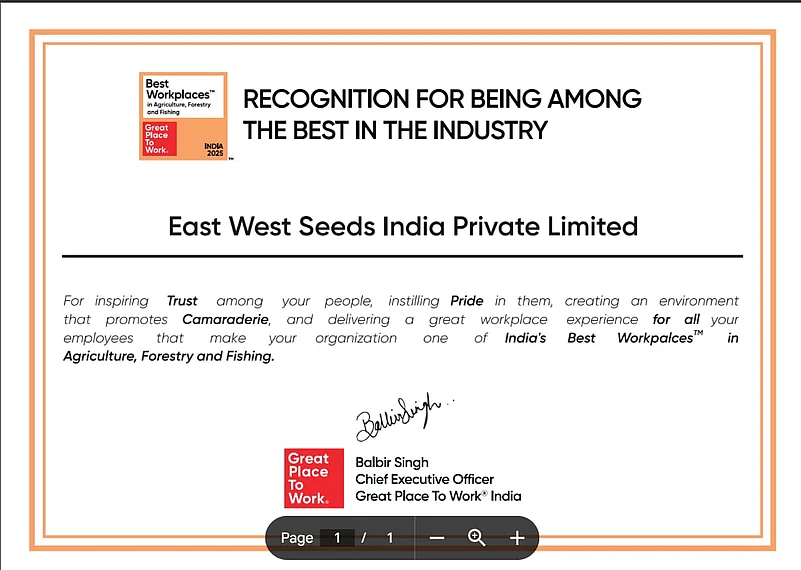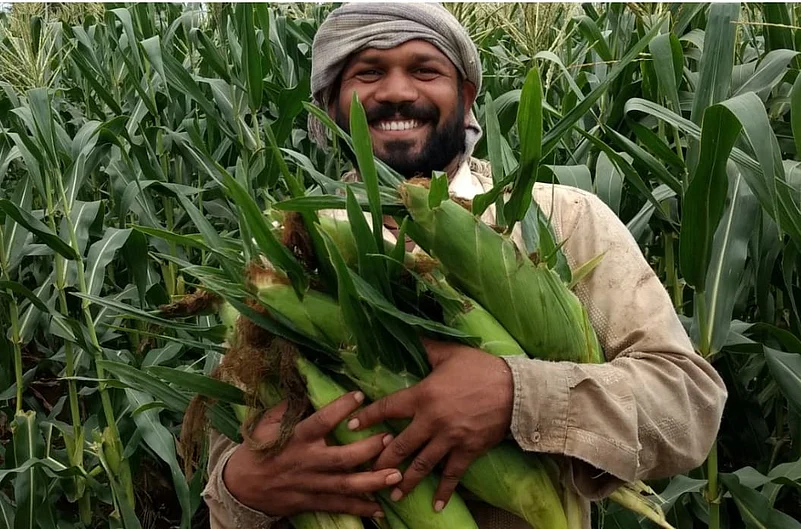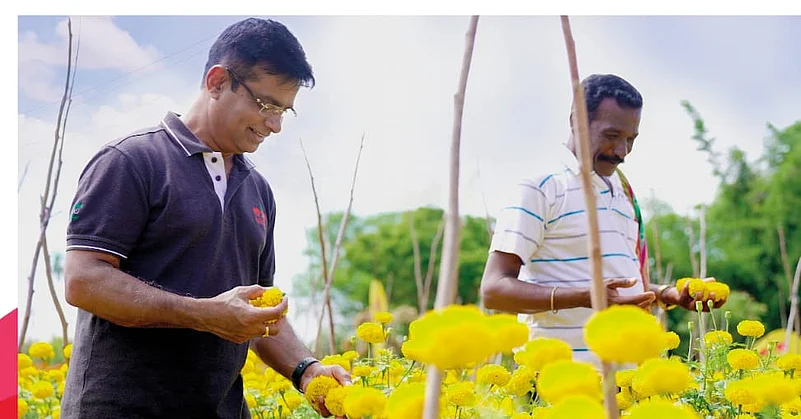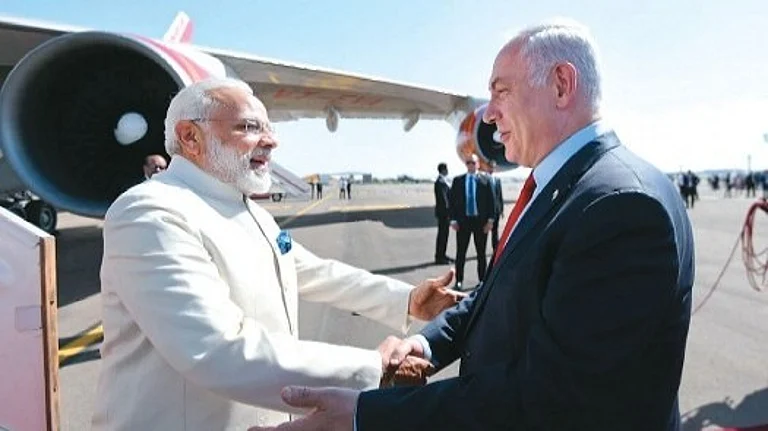East-West Seed India’s recognition among India’s Best Workplaces in Agriculture highlights a consistent focus on workplace practices in the agricultural sector: how people are treated inside the company shapes how they can support farmers outside. By creating an environment where everyone feels valued and heard, the company helps its teams do what matters most—standing beside the smallholder farmers who grow food for us all.
Vegetable farming is one of India’s oldest and vital livelihoods—yet the people who support it often work far from the spotlight. According to the Ministry of Agriculture and Farmers Welfare, India's 2023–24 estimates indicate that the country produces over 200 million tonnes of vegetables annually, making it the world’s second-largest producer.
This sector continues to grow as diets diversify, and urban demand rises.
Seed companies, agronomists, and field teams spend their days in rural fields, navigating local needs, languages, and growing conditions that vary from one village to the next.
Building trust, inclusion, and respect plays a role in developing long-term relationships that support the shared goal of meeting food security and nutrition needs.

Founded by World Food Prize laureate Dr. Simon Groot, East-West Seed has long focused on providing quality vegetable seeds suited to the needs of smallholder farmers. In India, the company has spent over 23 years specializing in tropical vegetable seeds, developing varieties that align with farmers’ changing needs and support improvements in yield, quality, and resilience. This commitment to farmer-first innovation is matched by a strong focus on people and culture.
East-West Seed India’s culture is shaped in corporate offices and in the fields and villages where farming decisions are made. Operating across diverse regions and languages, it emphasizes respect for local knowledge, trust, inclusion, and safety as essential foundations. By investing in employee training, fostering open communication, and valuing every perspective—from R&D to field extension—it aims to maintain a shared purpose: supporting smallholder vegetable farmers with practical solutions, reliable service, and long-term partnership.
East-West Seed India’s focus on farmer trust and inclusion aligns with broader efforts across the seed industry and government programs that aim to strengthen local engagement and support sustainable vegetable farming.
In 2025, the company was recognized among India’s Best Workplaces in Agriculture, Forestry, and Fishing by Great Place to Work India. G C Shivakumar, Country General Manager, describes the recognition as both an honor and a responsibility:
“Our entire mission is built around the farmer’s trust. But you can’t build trust outside if you don’t nurture it inside. This recognition tells us our people believe in our purpose and feel supported to deliver on it. In vegetable farming, where success depends on technical know-how, local adaptation, and service, we see our people as our most critical investment.”

The seed industry is inherently local and diverse, requiring teams to work across languages, cultures, and geographies. This diversity informs the company’s approach to inclusion and understanding on the ground. Smitha Kadam, Assistant Manager – Product Development Support, shares: “Working here has genuinely helped me grow—not just in skills but in confidence. I feel heard and respected for my ideas. It means a lot to see the company truly value inclusion, making sure women like me feel we belong and can really make a difference.”
Ranganatha GR, Head – Human Resources, says this focus on inclusion is both a value and a business need: “We want every team member—whether in R&D, production, extension, or sales—to feel respected and heard. For us, inclusion means creating an environment where everyone feels they belong, are respected, and have equal opportunities to grow. It’s about listening to different perspectives, valuing people for who they are, and making sure no one is left out in how we serve our farmers.”

This commitment to inclusion extends beyond the company gates. East-West Seed India focuses on working alongside farming communities to help ensure that everyone—especially those too often overlooked—has an opportunity to participate and succeed.
Women have played a significant role in vegetable seed production, contributing nearly 60% of the labor. However, contracts and payments were made in men’s names, limiting women’s financial independence.
Recognizing this, East-West Seed India launched a focused empowerment program so that contracts—and payments—go directly to women growers, providing them greater financial control and confidence. Women’s participation has already grown from 3% to 27% by 2024, with a goal of reaching 50% by 2026.
This year’s Great Place to Work India recognition reflects the company’s ongoing efforts to build a culture that supports trust, performance, and the specific demands of vegetable farming.
“We know farmers depend on us for seeds that deliver,” says Shivakumar. “But they also depend on us to be partners who listen, respect their realities, and deliver consistent support. Building that trust starts with how we work internally—with a culture that values learning, inclusion, and shared purpose.”
As demand for diverse, nutritious vegetables continues to grow, building trust with farmers remains essential. By investing in people, fostering inclusion, and staying committed to practical innovation, East-West Seed India aims to support smallholder farmers in delivering healthier harvests for the nation.










_(1).jpg?auto=format%2Ccompress&fit=max&format=webp&w=768&dpr=1.0)















